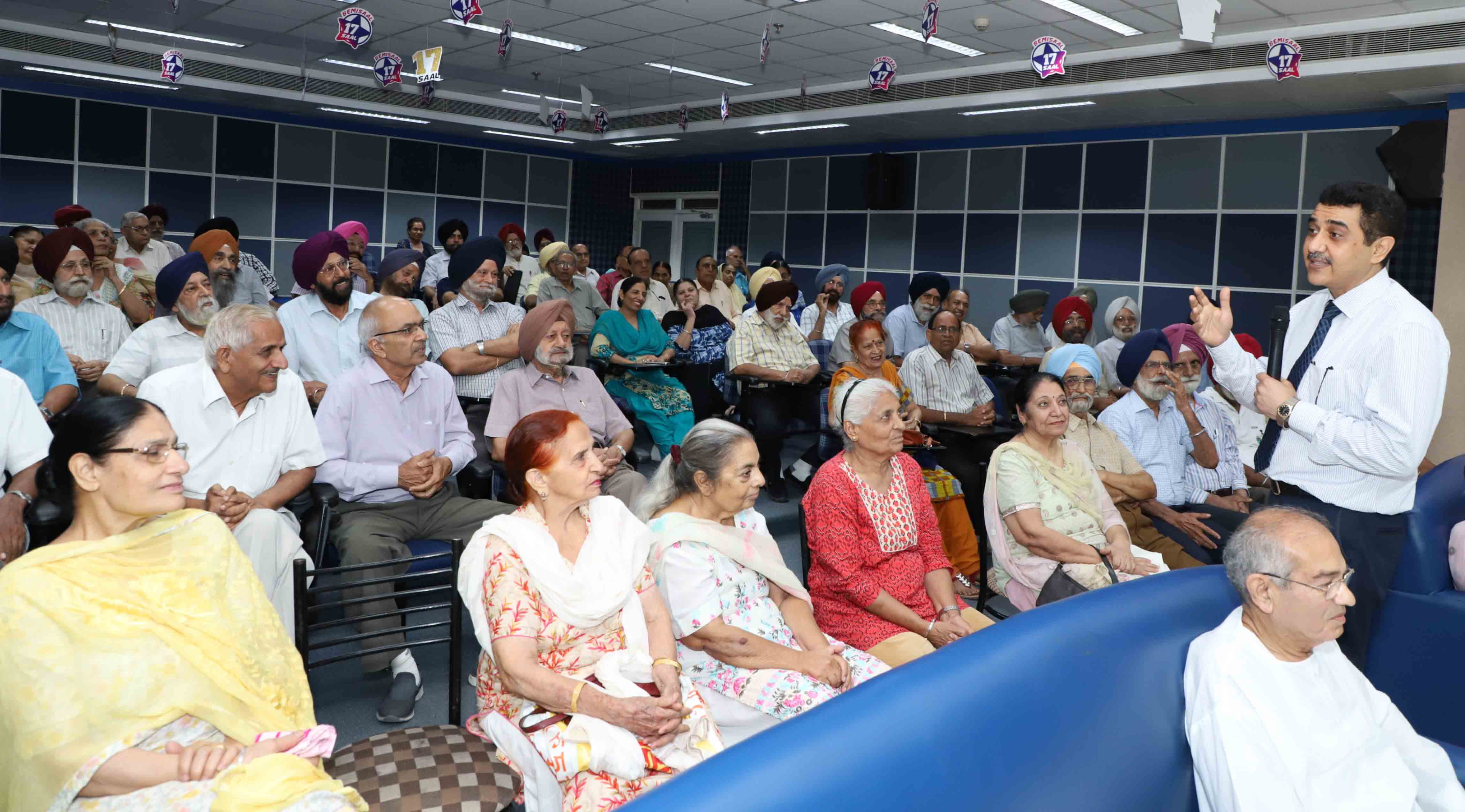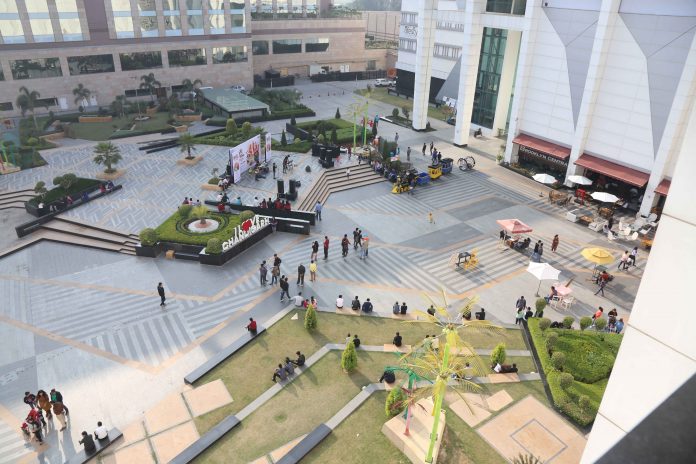An informative session on “Hernia and its Management” was organized for the members of Mohali Senior Citizens association at Fortis Hospital Mohali. Dr. Atul Sharma Joshi, Additional Director-Breast, Endocrine & General Surgery, was the speaker for this session. More than 100 members of the association attended the session.

Dr. Joshi shared a very valuable information on Hernia, its causes, symptoms and preventive measures. Speaking on the topic, Dr. Joshi said that usually, there is no obvious cause of a hernia. Sometimes hernias occur with heavy lifting, straining while using the toilet, or any activity that raises the pressure inside the belly area. In addition to these, the other factors that may cause hernia are being pregnant (puts pressure on your abdomen), being constipated (causes you to strain when having a bowel movement), fluid in the abdomen (ascites), suddenly gaining weight, persistent coughing or sneezing.
He informed, even babies and children, too, can get hernias. It happens when there is weakness in the belly wall. Hernias may be present at birth, but the bulge may not be noticeable until later in life. Some patients may have a family history of hernias. He also threw light on the types of Hernia. In an inguinal hernia, the intestine or the bladder protrudes through the abdominal wall or into the inguinal canal in the groin.
About 80% of all hernias are inguinal, and most occur in men because of a natural weakness in this area. In an incisional hernia, the intestine pushes through the abdominal wall at the site of previous abdominal surgery, said the doctor. This type is most common in elderly or overweight people who are inactive after abdominal surgery. A femoral hernia occurs when the intestine enters the canal carrying the femoral artery into the upper thigh. Femoral hernias are most common in women, especially those who are pregnant or obese. In an umbilical hernia, part of the small intestine passes through the abdominal wall near the navel. Common in newborns, it also commonly afflicts obese women or those who have had many children.
He also emphasized upon the fact that the surgery is the only treatment that can permanently fix a hernia. Surgery may be riskier for patients with serious medical problems. However, now-a-days, hernias can be fixed by open surgery or with the use of a laparoscope (camera). The advantages of using a camera include smaller surgical cuts, faster recovery, and less pain after the procedure.
Speaking on preventive measures, Dr. Joshi advised the audience to use proper lifting techniques, to lose weight if you are overweight, to relieve or avoid constipation by eating plenty of fiber, drinking lots of fluid, going to the bathroom as soon as you have the urge, and to exercise regularly. He also cautioned that men should see the doctor if they strain with urination. As it could also be a symptom of an enlarged prostate.






